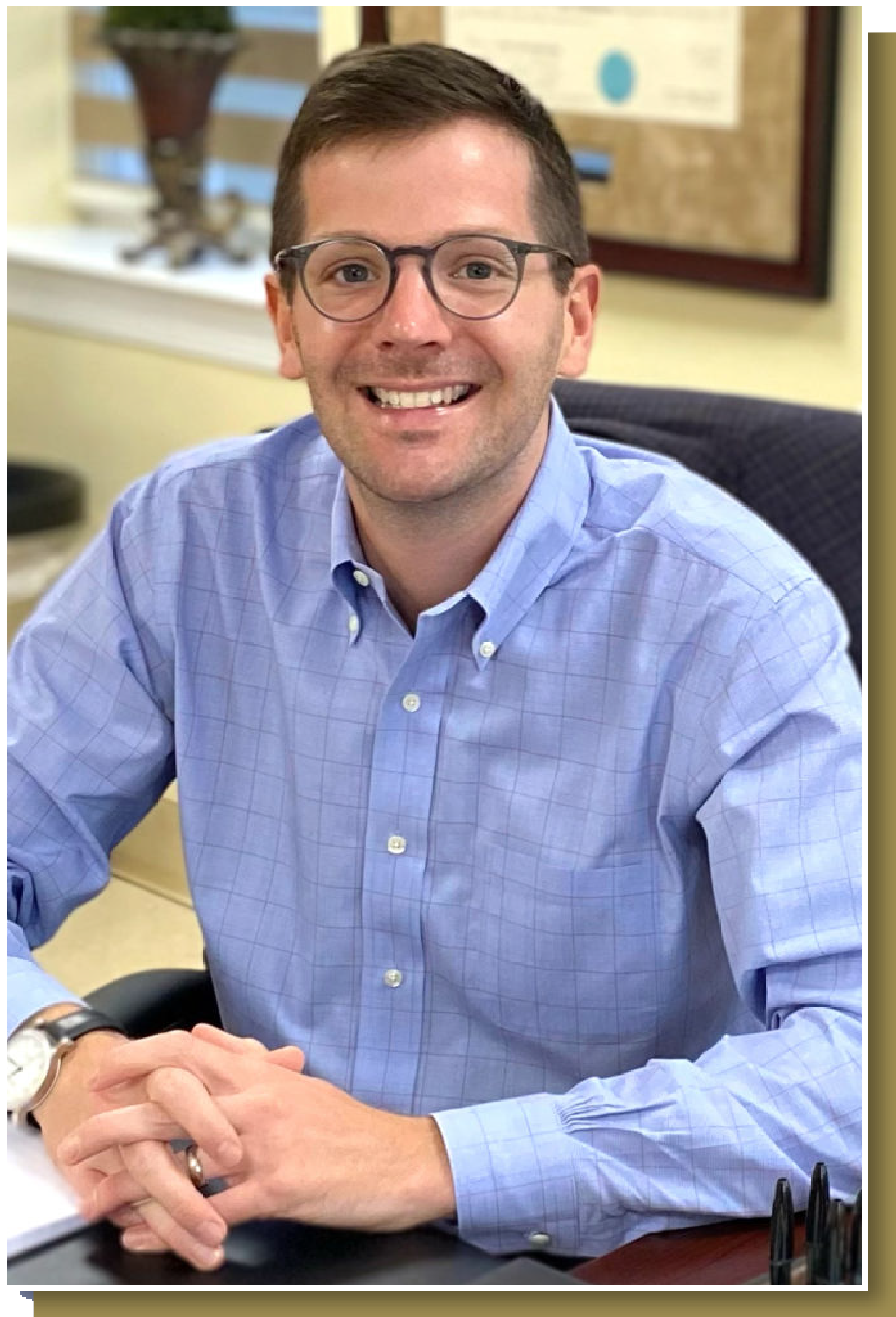OCD (Obsessive-Compulsive Disorder)
Get Help for Obsessions, Anxiety-Driven Behavior, and Other Symptoms in the Philadelphia Area
Curious about OCD (Obsessive-Compulsive Disorder)? The Philadelphia area’s Dr. Jacob D. Buinewicz explains that the mental health condition is marked by relentless, unwanted thoughts (obsessions) and repetitive behaviors (compulsions) seeking to alleviate anxiety. These obsessions and compulsions can significantly hinder daily functioning and personal well-being. However, with personalized care and a judicious approach, individuals with OCD (Obsessive-Compulsive Disorder) can experience relief and regain more control over their lives.

Dr. Jacob D. Buinewicz at Doylestown’s Buckingham Psychiatry is committed to providing compassionate, informed care for those grappling with OCD (Obsessive-Compulsive Disorder). Emphasizing a holistic plan that integrates therapy, meticulously chosen medication, and lifestyle adjustments, Dr. Buinewicz endeavors to ease the symptoms and underlying distress, thus bolstering patients’ journey toward a balanced life. For support in managing OCD and intrusive thoughts in the Philadelphia area, talk to Dr. Buinewicz.
Serving Philadelphia, Allentown, Bethlehem, Cherry Hill, Princeton, and nearby communities in Pennsylvania and New Jersey, Buckingham Psychiatry offers tailored care plans for individuals dealing with OCD in the Philadelphia area. Dr. Buinewicz invites anyone seeking enhanced mental health to reach out. Connect with him by calling 484.466.5560.
What Is OCD (Obsessive-Compulsive Disorder)?
Anyone seeking an OCD definition or meaning should know that OCD symptoms go beyond common habits or worries. Obsessive-Compulsive Disorder symptoms are characterized by intense, uncontrollable thoughts and ritualistic behaviors the patient feels compelled to perform. Understanding OCD’s nuances is crucial for effective treatment and achieving personal tranquility.
Breaking Down OCD (Obsessive-Compulsive Disorder)
OCD (Obsessive-Compulsive Disorder) presents in various—sometimes debilitating—forms, with each patient experiencing a unique set of challenges. As the name implies, there are two major components of the condition:
Obsessions
In this case, obsessions are intrusive, recurrent thoughts, images, or urges that trigger intensely distressing feelings. Common obsessions involve fears of contamination, irrational beliefs about harm coming to oneself or others, or an extreme need for symmetry or exactness.
Compulsions
Compulsions are repetitive behaviors or mental acts that a person feels driven to perform in response to an obsession or according to rigidly applied rules. These can include excessive cleaning, checking, counting, orderliness, or performing certain rituals thought to neutralize obsessions and reduce anxiety.

Meet Dr. Buinewicz

Jacob D. Buinewicz, MD is a board certified general psychiatrist. He graduated from Sidney Kimmel Medical College at Thomas Jefferson University Hospital.
Trained in the combined use of psychotherapy and medication, he offers evidence based treatment for a variety of psychiatric disorders. He has specific expertise in mood and bipolar disorders, ADHD, anxiety disorders, OCD, and PTSD. He also offers care for common sources of stress including life transitions, decreased productivity at work, relationship issues, and grief.
Dr. Buinewicz believes all treatment should begin with a patient-centered comprehensive and holistic evaluation. Patients are involved in creating a treatment plan that may include medications, therapy, or a combination of both. He believes that therapy is often a critical component of care as evidence shows that it provides benefit over medication alone. His therapeutic approach is tailored to the individual patient and contains elements of psychodynamic psychotherapy, Cognitive Behavioral Therapy (CBT), Dialectical Behavior Therapy (DBT), and Acceptance and Commitment Therapy (ACT).
Contact Dr. Jacob D. Buinewicz, MD for a comprehensive psychiatric evaluation and personalized treatment plan at 484-466-5560.
Personalized OCD (Obsessive-Compulsive Disorder) Treatment in the Philadelphia Area
Dr. Buinewicz champions a personalized approach to treating OCD, beginning with an in-depth assessment to understand each patient’s unique situation. The strategy might encompass a blend of therapy, appropriate medication, and lifestyle modifications aimed at mitigating distress and improving daily functionality.
Medications shown to be helpful include the antidepressants fluoxetine (known as Prozac), fluvoxamine (known as Luvox), paroxetine (known as Paxil), sertraline (known as Zoloft), and clomipramine (known as Anafranil).
While OCD (Obsessive-Compulsive Disorder) medication can be crucial for helping to manage symptoms, medication plus therapy has been shown to be the most effective approach. Below are components of the comprehensive treatment strategy offered at Buckingham Psychiatry.
Cognitive Behavioral Therapy (CBT)
CBT—particularly Exposure and Response Prevention (ERP)—is highly effective in treating OCD (Obsessive-Compulsive Disorder). This approach involves gradually exposing the patient to feared objects or ideas (exposure) and teaching them healthier ways to cope with the anxiety triggered by these fears, as opposed to compulsive behaviors (response prevention).
Mindfulness-Based Strategies
Practices like mindfulness and meditation help individuals with OCD (Obsessive-Compulsive Disorder) to stay grounded in the present, enhancing their ability to observe obsessive thoughts without automatically acting on them through compulsions.
Structured Routine and Physical Wellness
Establishing a balanced daily routine, incorporating regular physical activity, and following a nutritious diet are integral parts of managing OCD (Obsessive-Compulsive Disorder). Healthy habits can significantly impact mental health, reducing symptoms and promoting overall well-being.
Support Networks
Engagement in therapy groups can offer valuable peer support, where individuals share experiences and coping strategies. Additionally, nurturing supportive relationships with family and friends is critical. Buckingham Psychiatry encourages building a solid foundation of understanding and assistance among close contacts.
Community and Online Resources
Connecting with wider communities—such as local support groups or online forums dedicated to OCD (Obsessive-Compulsive Disorder)—can provide additional layers of support and help in normalizing the experiences of those living with the disorder.
In embracing a holistic approach, Dr. Buinewicz and Buckingham Psychiatry are dedicated to empowering individuals with OCD (Obsessive-Compulsive Disorder) through a combination of medical, therapeutic, and supportive strategies, contributing to a more manageable and fulfilling life.
Key Takeaways of OCD (Obsessive-Compulsive Disorder)
Dealing with OCD is a complex journey requiring patience, understanding, and the right support system. By adopting a comprehensive approach to treatment, individuals can navigate toward a feeling of normalcy and improved quality of life.
For help with OCD (Obsessive-Compulsive Disorder) in the Philadelphia area, contact Dr. Jacob D. Buinewicz at Buckingham Psychiatry in Doylestown, PA. Call 484.466.5560 to schedule a consultation.
